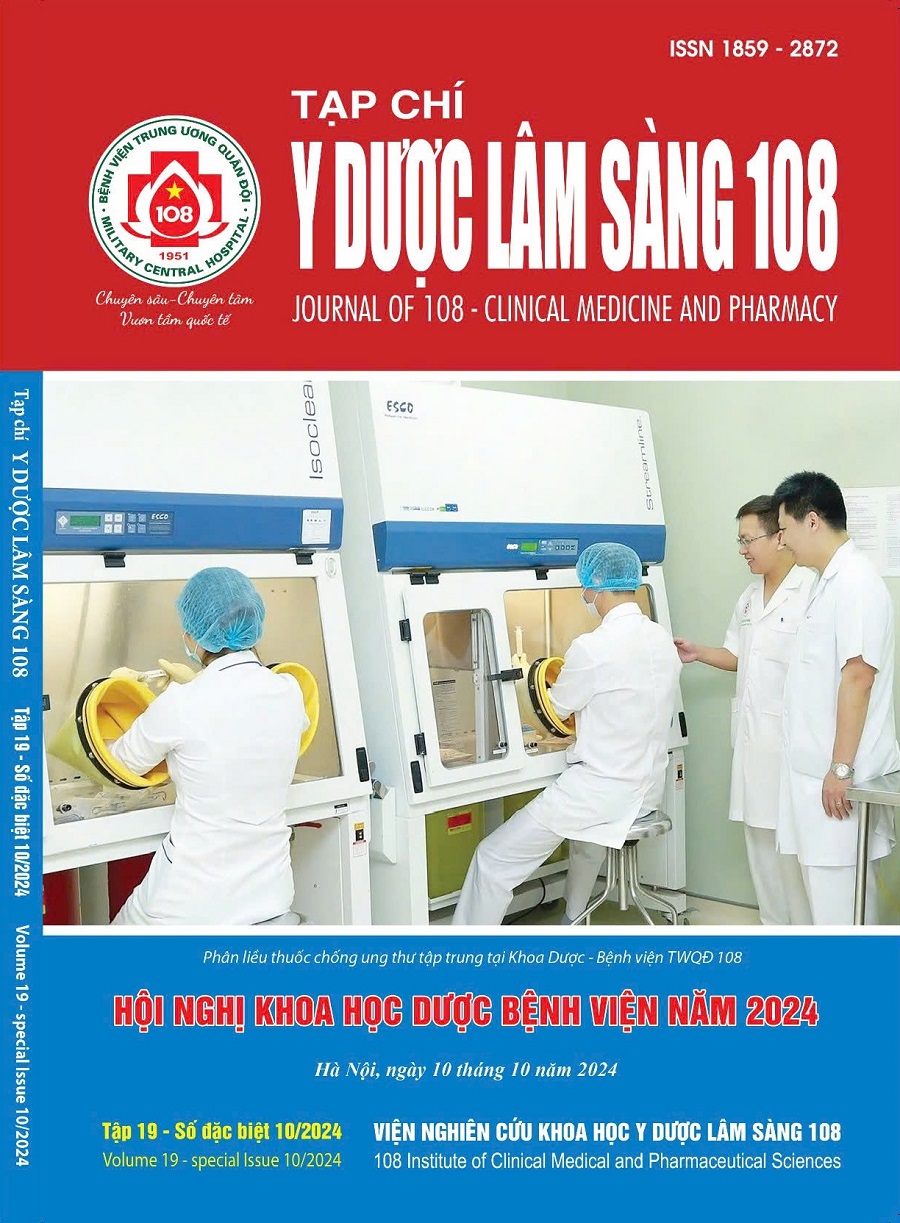Neuropsychological disorders related to fluoroquinolones in the National Spontaneous ADR Reporting Database
Main Article Content
Keywords
Abstract
Objective: To evaluate the characteristics and the preventability of neuropsychiatric adverse reactions related to fluoroquinolones in the National Spontaneous ADR Reporting Database. Subject and method: A retrospective descriptive study of spontaneous ADR reports registered at the National DI&ADR Centre from 2017 to 2021. Result: Out of 5149 reports related to fluoroquinolones, 404 reports were on neuropsychiatric disorders. The most reported drugs were levofloxacin (41.8%), ciprofloxacin (36.9%), and moxifloxacin (18.4%). After evaluation, 6.2% of reports were assessed as preventable ADRs (pADR) with associated factors including inappropriate dosage (15 cases), inappropriate prescription for patient’s underlying medical condition (7 cases), inappropriate indications (5 cases), and self-medication with antibiotics (1 case). Conclusion: To minimize the risks associated with neuropsychiatric disorders, it is necessary to implement interventions on managing fluoroquinolone use in clinical practice, focusing on preventable factors.
Article Details
References
2. Cục Quản lý Dược (2021) Công văn số 5785/QLD-ĐK về việc cung cấp thông tin liên quan đến tính an toàn của kháng sinh nhóm quinolon, fluoroquinolon.
3. Bộ Y tế (2020) Quyết định 5631/QĐ-BYT về việc Hướng dẫn thực hiện quản lý sử dụng kháng sinh trong bệnh viện.
4. Tran HN, Nguyen TNT, Tran NTK, Nguyen LT, Vu HD, Nguyen AH, Trinh NTH (2023) Preventability of Adverse Drug Reactions Related to Antibiotics: An Assessment Based on Spontaneous Reporting System. Ther Innov Regul Sci 57(5): 1104-1112.
5. Nguyễn Thị Lý, Lê Hiếu, Cao Thị Thu Huyền, Trần Ngân Hà, Nguyễn Hoàng Anh (B), Vũ Đình Hoà, Nguyễn Hoàng Anh (2023) Phân tích sự hình thành tín hiệu của một số phản ứng có hại đáng chú ý liên quan đến linezolid, vancomycin, colistin và carbapenem từ dữ liệu báo cáo ADR tự nguyện tại Việt Nam. Tạp chí Y học Việt Nam, 2(530), tr. 383-389.
6. The MedDRA Maintenance and Support Services Organization (MSSO) Medical Dictionary for Regulatory Activities. Retrieved 2023, from https://tools.meddra.org/wbb/.
7. WHO (2014) Reporting and learning systems for medication errors: The role of pharmacovigilance centres.
8. Zareifopoulos N, Panayiotakopoulos G (2017) Neuropsychiatric Effects of Antimicrobial Agents. Clin Drug Investig 37(5): 423-437.
9. Scavone C, Mascolo A, et al (2020) Quinolones-Induced Musculoskeletal, Neurological, and Psychiatric ADRs: A Pharmacovigilance Study Based on Data From the Italian Spontaneous Reporting System. Front Pharmacol 11: 428.
10. Stahlmann R, Lode H (2010) Safety considerations of fluoroquinolones in the elderly: An update. Drugs Aging 27(3):193-209.
11. Muanda FT, Sood MM, et al (2022) Association of Higher-Dose Fluoroquinolone Therapy With Serious Adverse Events in Older Adults With Advanced Chronic Kidney Disease. JAMA Netw Open 5(8): e2224892.
12. Stahlmann R, Lode HM (2013) Risks associated with the therapeutic use of fluoroquinolones. Expert Opin Drug Saf 12(4): 497-505.
13. Bộ Y tế (2015) Hướng dẫn sử dụng kháng sinh (Ban hành theo Quyết định số 708/QĐ-BYT ngày 02/3/2015). Nhà xuất bản Y học.
14. Moja L, Zanichelli V, et al (2024) WHO's essential medicines and AWaRe: recommendations on first- and second-choice antibiotics for empiric treatment of clinical infections. Clin Microbiol Infect, 30 Suppl 2: S1-s51.
15. Bộ Y tế (2023) Báo cáo giám sát kháng kháng sinh tại Việt Nam 2020.
16. Nga do TT, Chuc NT, Hoa NP, Hoa NQ, Nguyen NT, Loan HT, Toan TK, Phuc HD, Horby P, Van Yen N, Van Kinh N, Wertheim HF (2014) Antibiotic sales in rural and urban pharmacies in northern Vietnam: An observational study. BMC Pharmacol Toxicol 15:6. doi: 10.1186/2050-6511-15-6.
 ISSN: 1859 - 2872
ISSN: 1859 - 2872
